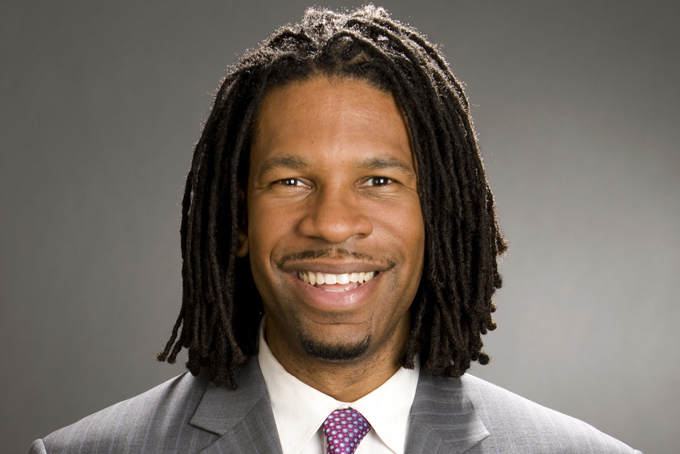
by LZ Granderson
(CNN) — You know those electronic collars that zap dogs that stray outside their electronic fences?
That seems to be the purpose of everyone’s favorite and seemingly innocuous phrase, “man up.”
Just mumbling those two words in a typical guy’s direction delivers a psychological shock that discourages him from venturing outside the restrictions of our traditional view of what it means to be a man.
Famed author Norman Mailer, known for his machismo and string of women, once said “tough guys don’t dance” — something I’m sure would be news to the men of the NFL, who are known for their machismo, string of women and, well, dancing in the end zone wearing tights.
But that’s the beauty of “man up.” Sometimes it’s the punchline shared among friends. Sometimes a mandate from strangers. At no point is it uniformly defined.
The irony in all of this, of course, is that it takes more strength to follow one’s own parameters than to stick to those handed down by the collective. A truth we’re constantly reminded of in Bible verses; Robert Frost’s “The Road Less Traveled”; and pop culture fixtures, like the 1976 flick “Car Wash,” in which the cross-dressing character, Lindy, confronts a critic with the iconic line: “I’m more man than you’ll ever be and more woman than you’ll ever get.”
And yet, despite these constant reminders of the strength it takes to be ourselves, when presented with an opportunity to recognize that strength, someone yells “man up” and we all retreat back behind the electronic fence: ridiculing, teasing, sometimes bullying, those who don’t immediately follow suit.
Because of this, it’s hard to ignore the comical dichotomy that is American masculinity today: boisterous grandstanders too afraid to look in the mirror and deal with their own crap. A nation of men stunted by what is known as alexithymia — an inability to “discriminate the usual nuances of emotional life” as defined by Jason Thompson, author of “Emotionally Dumb: An Overview of Alexithymia.”
Psychologist Ron Levant believes “a mild form of alexithymia is very widespread among adult men.” He says it’s a product of the “male emotional socialization ordeal, which requires boys to restrict the expression of their vulnerable and caring emotions and to be emotionally stoic.”
Which makes sense, when you think about the first time we hear things like “man up” or “be a man.” It’s never when we’re suppressing sensitivity, it’s only when we express it. Lack of connection with our feelings hurts our ability to empathize. And if we can’t feel with others, how can we truly feel for others?
This complexity is being played out in South Florida this week. The Sun Sentinel is reporting that Richie Incognito, the man accused of bullying his Miami Dolphin teammate Jonathan Martin, was told by coaches to “toughen up” Martin.
“I’m just trying to weather the storm right now,” Incognito said. “This will pass.”
And there’s plenty of evidence to suggest he’s right, for it is Martin — the Dolphins lineman who left the team, exasperated by months of bullying — who is widely being criticized for not manning up.
As Giants safety Antrel Rolle tweeted, “in this world in general people will do what u allow them to do.” He was referring to his interpretation of Martin’s inaction, but that could easily be applied to the group of similarly sized men who ganged up on young Martin and dubbed him “Big Weirdo” because he wasn’t the “norm.” Incognito, a designated team leader, was emboldened because none of Martin’s teammates manned up and stopped him.
Or worse yet, maybe someone did want to stop him but was too afraid to cross the “man up” electronic fence, a fence few men — including myself — are willing to cross on a regular basis.
So we do what was done to us — tell little boys not to cry, chastise classmates for being soft-spoken, let a co-worker know that he needs to grow a pair. It’s all fun and games until someone’s feelings get hurt, right?
And then you read a story, like the one of 17-year-old Steven Liu — who last week jumped to his death from a pedestrian bridge near his high school, and who some said was a victim of bullying — and you remember: Sometimes the continuous call to fit in, to “man up,” hurts more than just our feelings.
Editor’s note: LZ Granderson is a CNN contributor who writes a weekly column for CNN.com. The former Hechinger Institute fellow has had his commentary recognized by the Online News Association, the National Association of Black Journalists and the National Lesbian and Gay Journalists Association. He is a senior writer for ESPN as well as a lecturer at Northwestern University. Follow him on Twitter @locs_n_laughs.